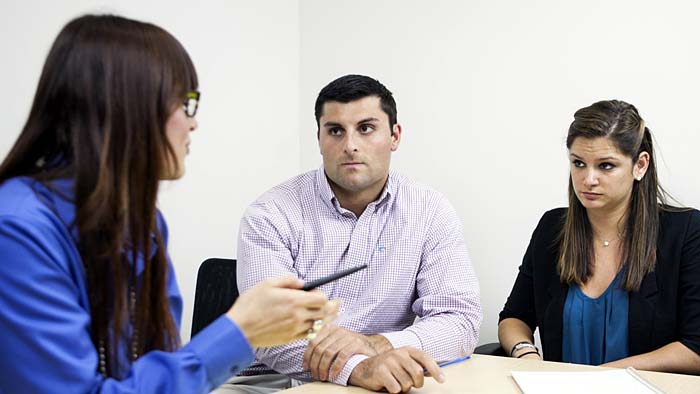Managing rental properties can be difficult at times. Landlords regularly face challenges like unexpected maintenance issues and tenants who fail to pay their rent. While these are unfortunate circumstances, little else is more difficult for a landlord to address than a tenant who commits suicide or there’s an unattended death in their rental property. A landlord must be versed about what strategies to employ when a tenant commits suicide or with an unattended death is discovered.

Self-Protection Upon Discovery of a Suicide or Unattended Death
Before discussing the need for self-protection upon the discovery of one or another of these types of death, a landlord must understand what is meant by an unattended death. As the moniker indicates, an unattended death is one in which a person dies alone. In addition, an unattended death most often involves the discovery of the body days, weeks, or even months after the tenant died. If this is the case and the body is discovered much later by a landlord, the human decomposition process is well underway.
People utilize a number of different means to take their own lives. Some common suicide methods are the use of a firearm or a blade of some type. These types of suicide result in the contamination of the death scene with blood and other bodily fluids. (As an aside, some suicides are not immediately discovered and can also fall into the category of an unattended death in which the human decomposition process is well underway.)
Under circumstances such as those described here, a landlord who comes upon the death scene faces the very real risk of exposure to dangerous biological pathogens. As a result, a landlord must be focused on self-protection when discovering these types of tenant deaths.
Because a landlord will likely not have necessary personal protective equipment readily available, this means that a landlord should distance himself or herself from the death scene. Examples of bloodborne pathogens include:
- Hepatitis B
- Hepatitis C
- HIV
- MRSA
In addition, although the appearance of the death scene may suggest a suicide or other type of unattended death, a landlord really is not in a position to rule out a crime. Thus, a landlord should never do anything to disturb the scene until law enforcement officials arrive and complete a thorough investigation.
Immediately Contact Law Enforcement
Once a landlord ensures that he or she is safe from any potential dangers associated with the death scene, he or she needs to call law enforcement at 911 immediately. The police or sheriff will be dispatched to the scene, along with the county coroner.
There is no set timeframe for the investigation of the scene to be complete. With that said, absent an indication of foul play, the process typically is undertaken at a relatively smooth pace. When officials complete the investigation of the scene, they turn the premises back over to the landlord (or to other residents of the rental property, if there are any).
Contact Family or Emergency Contact
A landlord should maintain a tenant information form that includes another family member, members, or some other emergency contact. A landlord should contact this person directly after law enforcement has been called. Admittedly, this can be a very challenging call to make, but it must be done promptly. This individual will likely be the person the landlord will rely upon to arrange for the removal of the deceased tenant’s belongings from the rental property.
Professional Suicide and Unattended Death Cleanup
As mentioned a moment ago, the scene of a suicide or unattended death can be contaminated with biohazardous pathogens. In addition, the process of thoroughly undertaking a suicide or unattended death cleanup can be extremely challenging. Consequently, a landlord is best served by seeking the assistance of a suicide cleanup or unattended death cleanup professional.
Typically, a professional suicide cleanup or unattended death cleanup specialist utilizes a four-phase process to remediate the aftermath of these types of deaths:
- Cleanup of biological matter and contaminated items
- Sanitization
- Deodorization
- Restoration
The ultimate objective of a biohazard remediation professional is the restoration of a rental home to a fully habitable condition. The future use of the premises depends on the thorough completion of each of these vital steps, which is something only a seasoned, qualified remediation professional can successfully undertake.
Safety is another key consideration for a professional suicide or unattended death scene remediator. Not only does a remediation specialist keep others safe during the cleanup process, but a professional also ensures that the crew involved in the restoration of the scene is properly protected. This includes the use of suitable personal protective equipment that includes:
- Gloves
- Mask
- Smock, apron, or uniform
- Goggles
Suicide or Unattended Death Cleanup Costs
There is a fee associated with the biohazard remediation and cleanup of a suicide or unattended death scene. The owner of the rental property may have at least some coverage in a casualty insurance policy associated with the premises. The costs of remediation can also be billed to the estate of the deceased individual. That might seem a crass thing to do. However, keep in mind that estates are billed for costs of final medical care and other charges that arise surrounding an individual’s passing and there is no reason why a landlord should not be extended the same consideration.
Even if a landlord owns only one rental property, being as proactive as possible ahead of any challenging events is recommended. In the same way, a landlord likely has identified a plumbing professional to address related issues should they arise, a landlord should identify and reach out to a remediation professional in the event a tragedy like a suicide or unattended death occurs at the rental property.
Given that there aren’t that many rental properties in Louisville, the earning potential with investment properties is great. Having trusted resources to help you throughout whatever might come your way is simply smart business.



